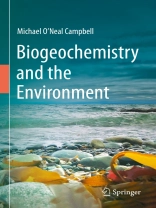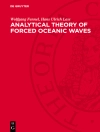Biogeochemistry may be defined as the science that combines biological and chemical perspectives for the examination of the Earth’s surface, including the relations between the biosphere, lithosphere, atmosphere, and hydrosphere. Biogeochemistry is a comparatively recently developed science, that incorporates scientific knowledge and findings, research methodologies, and models linking the biological, chemical, and earth sciences. Therefore, while it is a definitive science with a strong theoretical core, it is also dynamically and broadly interlinked with other sciences. This book examines the complex science of biogeochemistry from a novel perspective, examining its comparatively recent development, while also emphasizing its interlinked relationship with the earth sciences (including the complementary science of geochemistry), the geographical sciences (biogeography, oceanography, geomatics, earth systems science), the biological sciences (ecology, wildlife studies, biological aspects of environmental sciences) and the chemical sciences (including environmental chemistry and pollution). The book covers cutting-edge topics on the science of biogeochemistry, examining its development, structure, interdisciplinary, multidisciplinary, and transdisciplinary relations, and the future of the current complex knowledge systems, especially in the context of technological, developments, and the computer and data fields.
Tabela de Conteúdo
Chapter 1: Biogeochemistry and its Complexity.- Chapter 2: The Background of Geochemistry.- Chapter 3: Earth Systems Science and Systems Ecology.- Chapter 4: Biogeochemistry, Biogeography and Geomatics.- Chapter 5: Biogeochemistry and Oceanography.- Chapter 6: Biogeochemistry and Conservation Biology.- Chapter 7: The Future Developments of Biogeochemistry.
Sobre o autor
Michael O’Neal Campbell is a biogeographer, conservation biologist, and geomatics specialist. His research and teaching interests include biogeography, physical geography, nature-society relations, and geomatics. His current research interests include wildlife studies, and the development of related sciences from biological and geographical perspectives. This book, Biogeochemistry and the Environment, reflects his interest in the links between biogeography and geography, and the recent developments in technology that have created new links between these subjects. He has a Ph D in Biogeography and Nature-Society relations, and master’s degrees in conservation biology and geomatics. He has also taught courses and researched at several UK and Canadian universities, including the Universities of East Anglia, Sussex, Brighton, London, and Strathclyde, and Simon Fraser and Carleton University.












